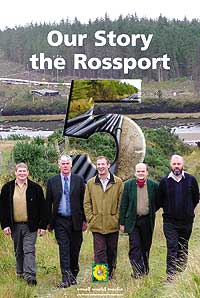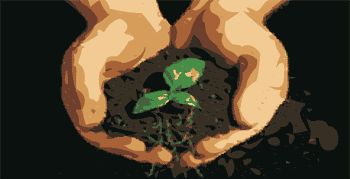Supernatural Thinking Amongst the Secularists?
 I am responding here to a post from myspace.com/carl_sagans_cosmos, of an article from the Humanist magazine (Spirited away: Some atheists start believing in anything after they give up believing in God, says Meera Nanda).
I am responding here to a post from myspace.com/carl_sagans_cosmos, of an article from the Humanist magazine (Spirited away: Some atheists start believing in anything after they give up believing in God, says Meera Nanda).The quote below sums up a strand of those who reject (in the UK) the Christian idea of God, and I assume that it fits for those from other religious (Meera talks about Hinduism, for example).
"But as secularists have begun to take on religion there is a danger that in calling for a rigorous evidence-based examination of one area they leave other areas untouched. In banishing religion from the front door some of these secularists are happily letting other forms of supernatural thinking in through the back."
However, is this rejection of a particular version of deity and its accoutrements, "atheism", as some parts of Meera's article and the headline suggest? I think the core problem with Meera's thesis is this identification of anti-(organised?)-religion with "atheism", though I think that to some extent she may mean (as the above quote suggests) "secularists" not "atheists". The mindset that then goes out and embraces buddha, or Dollar worship, or the SWP is still pursuing the same category of "knowledge" - ie, one where those who accept tham are actually putting the hard work of thought aside and instead taking up easy and comfortable "security blankets". That is, they reject one pile of hokum (the one forced on them by their culture/upbringing, perhaps) and take up another (that they chose to fit their psychology at that time and place).
I feel such actions to be a cop-out that is anti-rational, and usually means that "atheism" was either not really there in the first place, or that strains of having to be more engaged with information sent them running back to the security blanket after a brief flirtation. I suspect that most people who would see themselves (if pushed on it) in the latter group - and on closer analysis really in the former.
It has been said that seeking knowledge can neve bring peace of mind, as answers usually reveal yet more questions. This is, I think true to some extent, and I realise many find surety more comfortable than truly seeking knowledge. They are welcome to bail on us, but if they styled themselves "atheist" once, I hope they remember without rancorously rejecting as a self-defence/justification response what that was about.
Some of the ideas Meera quotes (belief in reincarnation, astrology, 'vibration therapies'...) are in my opinion all nonsense, more or less, whilst others (such as yoga, transcendental meditation...) have elements of sanity and can be a real boon to practitioners have many nonsense elements (but lets not throw the baby out with the bathwater). But what of the cybernetic / ecology / inter-connectedness that is reflected in McLuhan and Lovelock? Dawkins 'memes' even? I think these have real and rooted value. Teilhard de Chardin or avid Bohm? Same roots, but take their metaphors and analogies too far, perhaps? ...
Ironically, I think many ideas that are deemed to be, or are interpreted as, 'supernatural' by those who are looking at a shallow level (of metaphor usually) are valid. And many that have some scientific currecny, such as popular interpretations of chaos theory, complexity theory, quantum mechanics, even big bang... whilst cogent, also break any number of 'rules' of philosophy (especially parsimony, Occam's razor, and infinite regress), and are questioned deeply by many physicists. The Popperian view of what science should be are increasingly over-run by aspects of these common worldviews, and to the detriment of science. If we accept some of the interpretations that we see increasingly looking like ever more complicated patch-jobs, like the English legal system, it is hardly a surprise that self-styled 'scientists' (and a paper degree from a university proves nothing) push ID / creationism through the back door and think that they are not doing anything more dodgy than many of those in the 'respectable' scientific community.
The end of the movie version of Contact spotlights the problem - a McGuffin is set up, forcing the heroine to accept a faith logic, but this has not got sensible real world parallels at that level - the God of the Gaps is NOT a necessary consequence of the unknown or of Kant's 'unknowable ground of being' (and I think he may have been right), and the 'cannot prove so let us just give in and join the darkside' plot device is rank. I think that this is where those of us who embraced atheism and rational science from the field of philosophy may have a lead on those who are immersed in ticker tape experiments - we can really rather strongly insist on the valdity of ideas we cannot easily 'prove' in a lab, and not feel the lack to necessarily be a problem.
However, back to some of the 'holistic' but sensible ideas I alluded to above. This blog will, over time, address several aspects of these ideas. But it is true that we must keep our critical faculties engaged at all times, and aimed at oursleves too - some of these ideas do edge towards the negatively cosmic if not watched... Lovelock's Gaia presents an obvious example - the Earth as homeostaic mechanism, evincing qualities usually defines as those of an 'organism' (see also Vernasky's biosphere work), is a sensibel metaphor, and in some ways perhaps more than just a metaphor... but Gaia as earth mother? As human hater and destroyer? As conscious entity? Please, spare me!
McLuhan's (catholic) 'global village' and 'tools as extension of man' ideas, too, heading towards a new level of evolution of consciousness through our technologies (cf; William Gibson's cyberspace/VR, or Michael Swanwick's negative take in Vacuum Flowers...), can appear a friutful metaphor, but a leap too far is taken in SF (forgivably, that's it's job), but more worryingly in the work of extropians and others who seek the singularity - a secular rapture?, and also those such as de Chardin (and Hegel) who posited the idea that we are God, we just don't know it yet, as we are still evolving into God (in de Chardin, we attain a higher evolutionary and planetary state, via noosphere to the omega point; in Hegel through the Weltgeist and his description of the corn containing the seed of the oak all along, as a metaphor for man evolving to the godhead).
I am excited by some of these ideas (I was a big SF head before I became a philosopher, and still am on the sly), but also have the critical faculties to at least try and stop the slide. I understand we all have a psychological urge to wrap it all up in a glittery and finite parcel, to submerge the fear of the unknown through denial.
But those that succumb? They ain't atheists.
Tim





